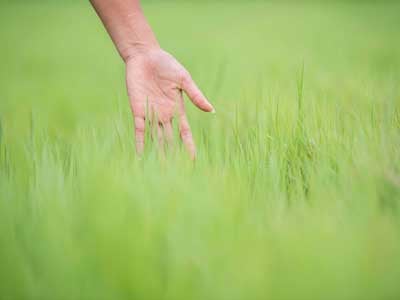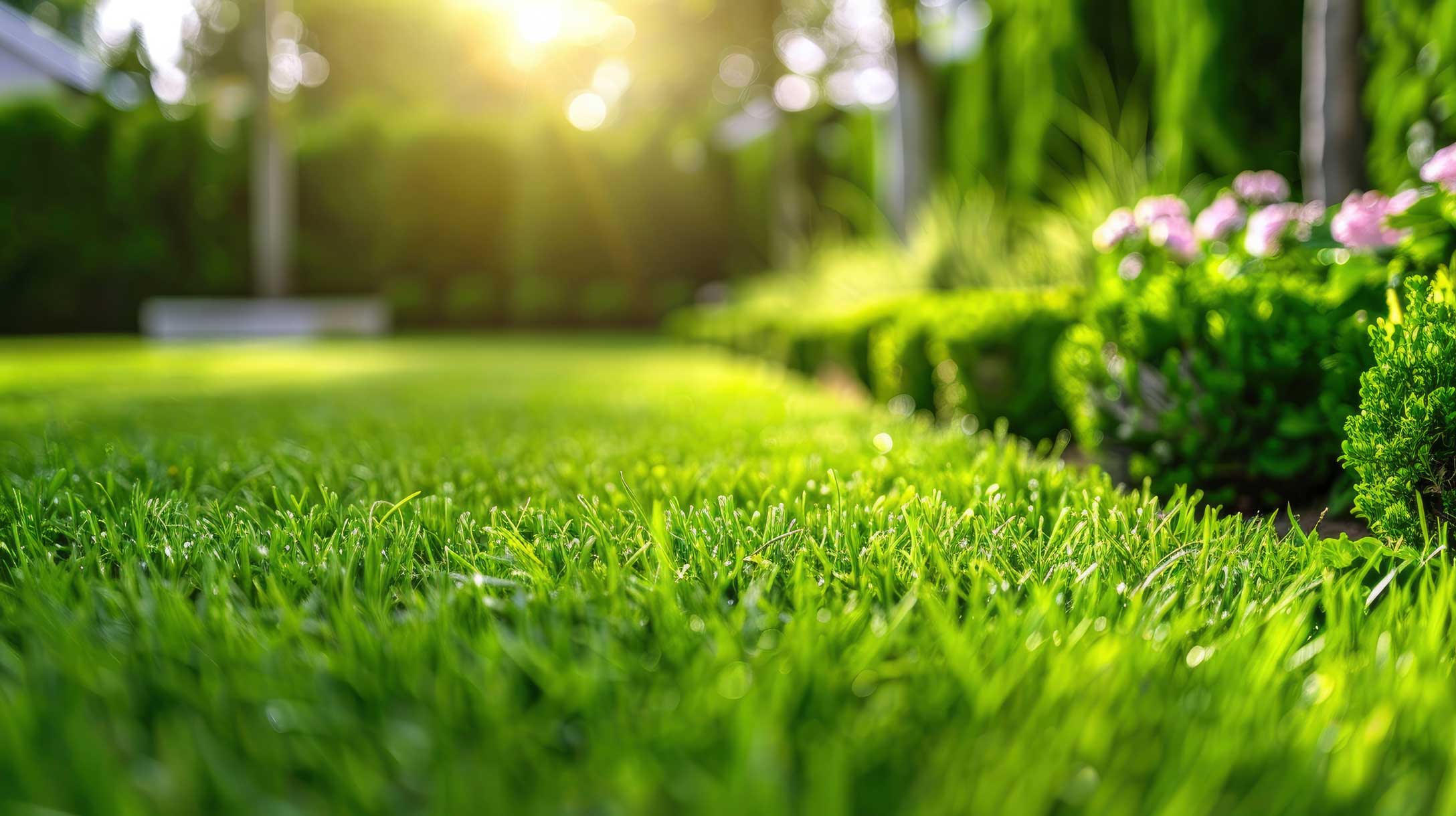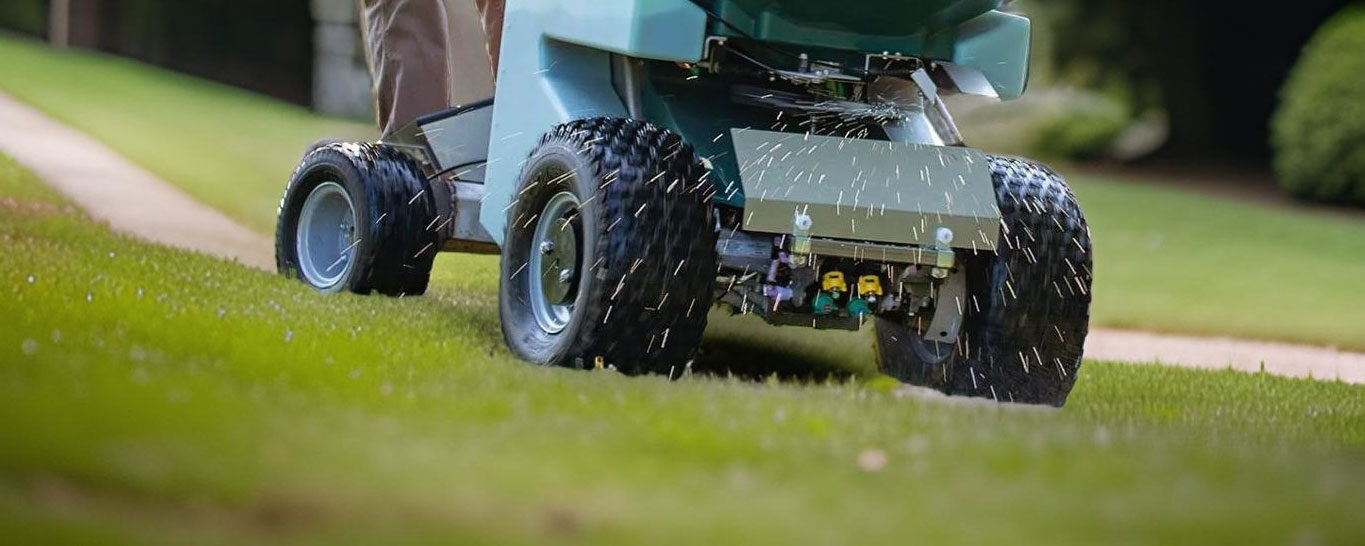4 Lawn Care Mistakes to Avoid in Early Spring
Get Your Lawn Off to a Strong Start and Grow Thicker, Healthier Grass This Spring!
Spring arrives, and the urge to get outside and start working on the lawn kicks in. But starting too early—or skipping the wrong step—can keep you from getting the lush, green lawn you want. From stunted grass growth to a yard full of weeds, here are the most common early spring yard treatments homeowners get wrong—and how to do them right for results you’ll actually notice.
1. Mowing Too Early Damages the Grass You’re Trying to Grow
As the snow melts and temperatures rise, many homeowners are eager to get outside and start working on their lawns. But mowing before your grass is actively growing can weaken the root system and increase the risk of disease. Grass needs time to bounce back from winter dormancy. Cutting too soon removes essential nutrients stored in the blades and invites patchy growth.
What to do instead: Wait until daytime temperatures consistently reach the mid-50s and your lawn begins to green up naturally. Your first mow should only remove the top third of the blade.

2. Overwatering in Spring Creates More Problems Than Solutions
Your lawn is likely already holding moisture from snowmelt or early rains. Watering too soon or too much can drown grassroots, encourage shallow root systems, and invite mold or fungal issues—especially in shaded or compacted areas.
Better approach: Let the lawn dry slightly between rains before introducing irrigation. Deep, infrequent watering once growth begins is far more effective.
3. Skipping Pre-Emergent Crabgrass Control Allows Crabgrass to Take Over
By the time you see crabgrass, it’s already too late. Pre-emergent crabgrass control targets seeds before they germinate, which is essential for stopping crabgrass and other aggressive intruders.
To effectively prevent crabgrass, apply a pre-emergent herbicide in early spring (March & April), ideally when soil temperatures consistently reach 50-55°F and before crabgrass seeds begin to germinate.
4. Treating Lawn Care as a One-Time Task Instead of a Seasonal Plan
It’s tempting to treat spring lawn care like a weekend checklist. But creating and maintaining a lawn you’re proud of takes consistent care and seasonally timed treatments.
What to do next: Sign up for a full service lawn care program that adjusts to seasonal conditions and supports your grass all year. You’ll spend less time troubleshooting and more time enjoying your yard.
Set Your Lawn Up to be the Healthiest in the Neighborhood
If your goal is thick, green grass that looks great from the curb and feels great underfoot, the first step is avoiding the mistakes that hold most lawns back. TLC – The Lawn Company helps homeowners get the timing, treatments, and techniques right—so your lawn doesn’t just survive spring, it thrives.
Following these steps will help your lawn come out of winter strong and ready for the growing season ahead!
Spring Lawn Care FAQs
As soon as the snow melts and temperatures start rising, it's time to wake up your lawn. Start by raking up leaves and debris, checking for bare spots, and applying pre-emergent weed control. But don’t rush—jumping in too early can do more harm than good.
Your lawn needs about 1 to 1.5 inches of water per week, including rain. Water deeply but not too often to encourage strong roots. The best time to water is early in the morning so your grass can absorb moisture before the sun gets too hot.
Wait until your grass is about 3–4 inches tall before the first mow. Mowing too early can weaken your lawn while it’s still recovering from winter. Also, make sure your mower blades are sharp for a clean cut that helps prevent disease.
Apply a pre-emergent weed control early in the season. This creates a protective barrier in the soil that stops weed seeds (like crabgrass) from sprouting. For existing weeds, use a targeted weed control treatment to keep your lawn looking its best.
The best time to schedule lawn treatments is early spring before weeds and pests start to wake up. A year-round lawn care plan can help you stay ahead of problems with fertilization, weed control, aeration, and seasonal treatments so you can enjoy a thick, green, and healthy lawn all year.



